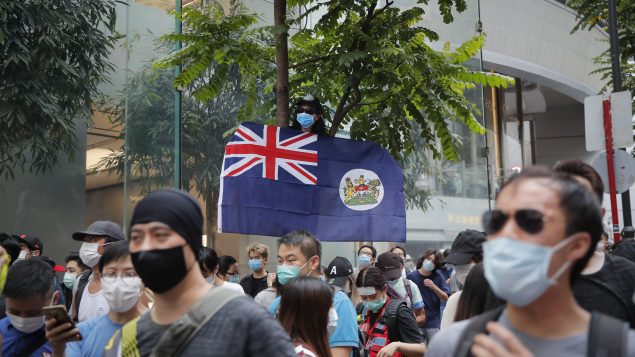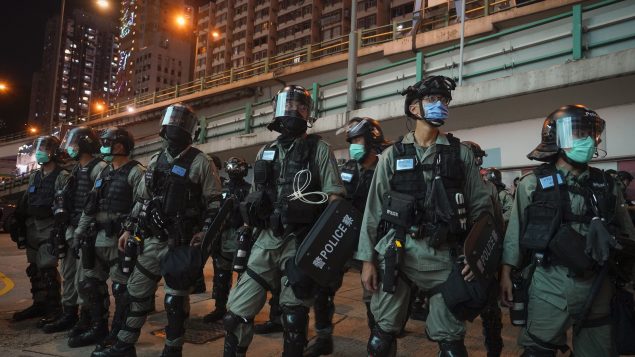Canada joined 26 countries at the UN’s Human Rights Council on Tuesday to express “deep and growing concerns” regarding China’s treatment of the Uighur and other Muslim minority groups in Xinjiang and Beijing’s national security law targeting dissent in Hong Kong.
UK’s Ambassador to the WTO and UN in Geneva, Julian Braithwaite, said the 27 signatories of the statement are concerned about “arbitrary detention, widespread surveillance and restrictions, particularly targeting Uighurs and other minorities in Xinjiang.”
The statement also referred to recent reports that China is forcing women to be sterilized or fitted with contraceptive devices in Xinjiang in an apparent attempt to limit the population of Muslim Uighurs.
Braithwaite said the signatories are urging China to allow the UN High Commissioner for Human Rights, Michelle Bachelet, “meaningful access to Xinjiang at the earliest opportunity.”
“We further wish to raise our deep and growing concerns at the imposition of legislation related to national security on Hong Kong, with clear implications for the human rights of people in Hong Kong,” Braithwaite said.
The legislation allows Beijing and Hong Kong authorities to crack down on subversive activity and protest in the semi-autonomous territory.

A man displays the Hong Kong colonial flag on the anniversary of Hong Kong’s handover to China from Britain in Hong Kong, Wednesday, July. 1, 2020. Hong Kong marked the 23rd anniversary of its handover to China in 1997, and just one day after China enacted a national security law that cracks down on protests in the territory. (Kin Cheung/AP Photo)
The Chinese legislation goes against the Hong Kong Basic Law and its international commitments under the principles of the legally binding, UN-registered Sino-British Joint Declaration, Braithwaite said.
“Making such a law without the direct participation of Hong Kong’s people, legislature or judiciary of Hong Kong undermines ‘One Country, Two Systems,’” Braithwaite said.
“We urge the Chinese and Hong Kong Governments to reconsider the imposition of this legislation and to engage Hong Kong’s people, institutions and judiciary to prevent further erosion of the rights and freedoms that the people of Hong Kong have enjoyed for many years.”
China routinely dismisses all such criticism as interference in its domestic affairs. One of the crimes in the Hong Kong security law explicitly outlaws receiving funding or support from overseas to disrupt lawmaking in Hong Kong or impose sanctions on the city.
“This issue is purely China’s internal affairs, and no foreign country has the right to interfere,” Chinese Foreign Ministry spokesperson Zhao Lijian said.
Many fear the law will be used to curb opposition voices and see it as Beijing’s boldest move yet to erase the legal firewall between the mainland’s Communist Party system and Hong Kong, which was promised a high degree of autonomy and civil liberties under a “one country, two systems” principle.
A joint statement issued by G7 countries on June 17 said the national security law “would jeopardize the system which has allowed Hong Kong to flourish and made it a success over many years.”
The U.S. warned that China’s repeated violations of its international commitments “is a pattern the world cannot ignore.” And the European Union warned that China risked “very negative consequences” to its reputation and to business confidence in the global financial hub.
Stressing a legal and moral duty to its former colony, Britain on Wednesday announced it is extending residency rights for up to 3 million Hong Kongers eligible for British National Overseas passports, allowing them to live and work in the U.K. for five years.
With files from The Associated Press







For reasons beyond our control, and for an undetermined period of time, our comment section is now closed. However, our social networks remain open to your contributions.